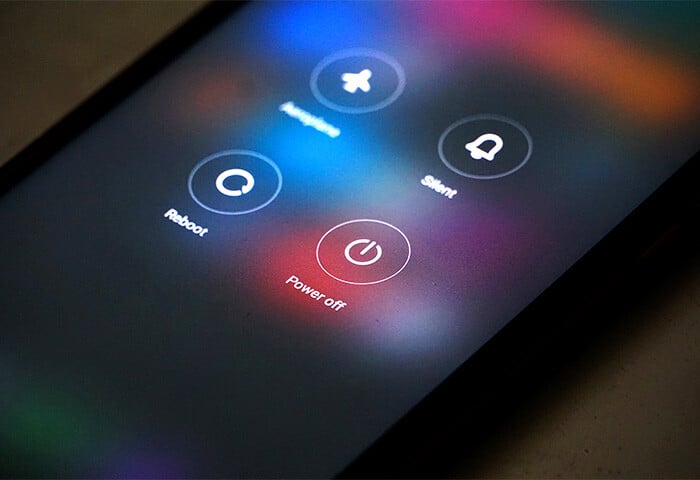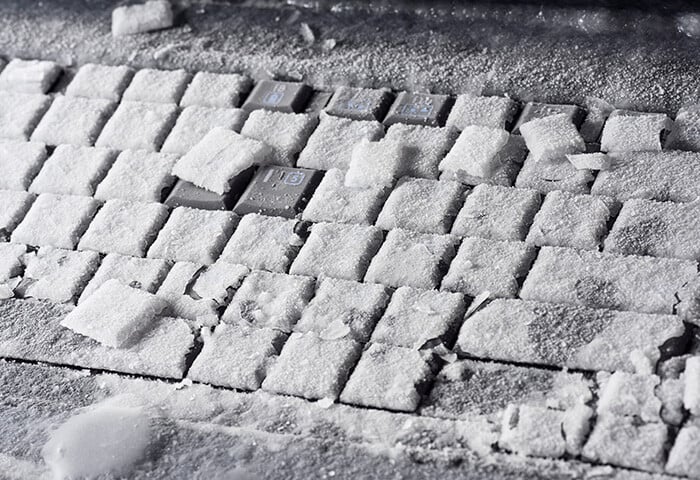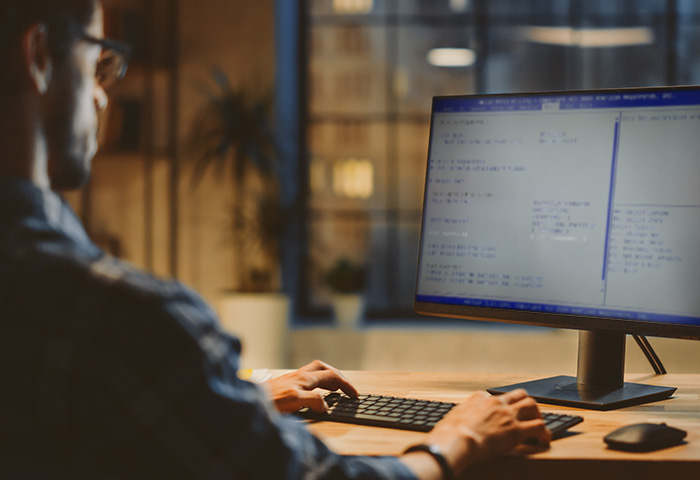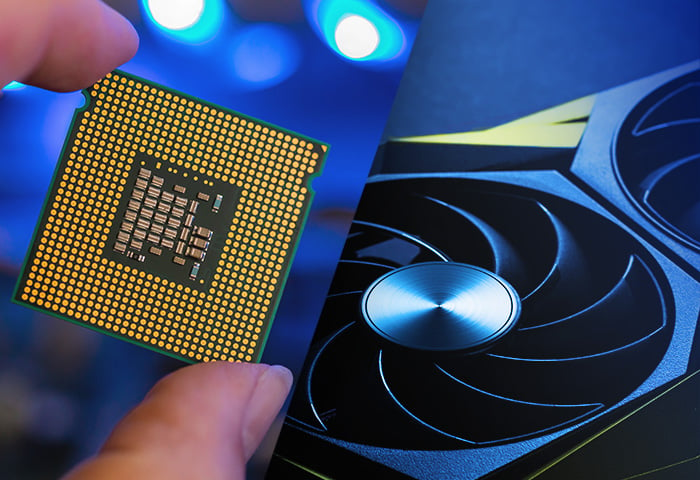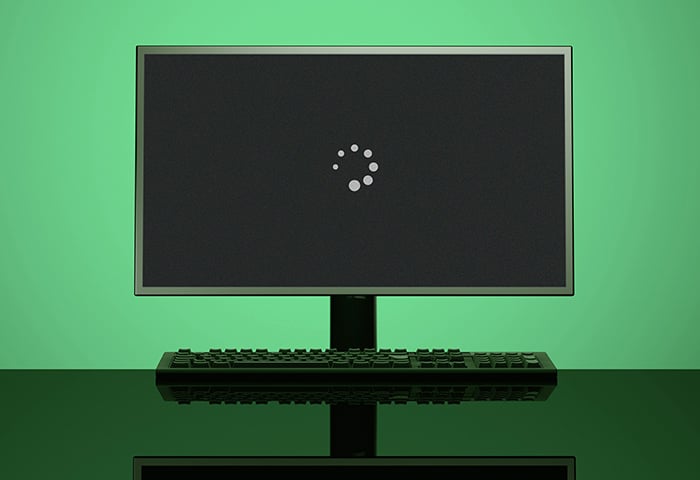Common reasons why your PC is overheating
Computer overheating can stem from both physical issues and file system overloads. Dust buildup can block fans, causing the CPU or GPU to overheat, while running too many applications at once can overwork the system and raise temperatures.
Let’s look at all the reasons why your computer gets so hot. While this section contains some general advice about common issues that can lead to a hot device, we’ll take a more detailed look at how to fix an overheating computer further down:
Too many processes and applications running simultaneously
The more programs, apps, and background processes you have running, the harder your computer has to work. This increased workload causes components to heat up faster, which can overwhelm your PC’s cooling system and lead to overheating, reduced performance, and potential damage to internal hardware.
Unresponsive applications
Applications can freeze due to bugs or glitches, or because your computer doesn’t have enough space or power to make them work properly. However, these frozen processes continue to use CPU and memory, causing the system to work harder than necessary. To prevent unresponsive applications from contributing to overheating, terminate them via Task Manager.
Too many browser tabs open
Firefox and Chrome both gobble up RAM if you’ve got a lot of tabs open, raising your computer’s overall temperature. While RAM processes don’t generate as much heat as the CPU does, a few open tabs could be the difference between your computer overheating and not.
Defective fans
Your computer’s fans keep cool air flowing through your computer to help regulate internal temperatures. But when fans are damaged or not functioning efficiently, airflow is reduced, preventing heat from being expelled. Signs your fan is defective include sudden and sustained fan volume changes, strange clicking, or other sounds.
Blocked air vents
Even a fully functional fan can’t maintain airflow around if there’s something in the way. Blocked air vents can cause overheating by restricting the airflow needed to cool internal components. When vents are clogged with dust or obstructed by objects, hot air remains trapped inside the computer, leading to rising temperatures.
Outdated software
Software needs to be updated regularly in order to run smoothly and efficiently. Outdated software can lead to overheating by causing inefficient resource management and increased system strain. Older applications may not optimize hardware usage effectively, forcing the CPU and memory to work harder.
Viruses or other malware
Viruses and malware such as spyware or cryptojackers can cause overheating by running hidden processes that consume excessive system resources. These malicious programs often operate in the background, forcing the CPU to work harder, generating additional heat, and slowing down your computer.
Overheated CPU or GPU
The CPU and GPU are the primary sources of heat in a PC. They function by rapidly starting and stopping tiny electrical currents through millions of transistors, which generate lots of resistance and, therefore, heat. If everything else seems to be operating normally, a faulty CPU or GPU could be the issue.
Dust buildup on your PC’s fans and vents
Dust buildup on your PC's fans and vents can significantly hinder cooling efficiency. The little nooks and crannies around your computer are perfectly suited to fill up with fluff and other detritus which can block airflow and prevent fans from spinning effectively, leading to trapped heat inside the case.
How to fix an overheating computer
You can fix an overheating computer by physically cleaning the inside of your computer, closing and deleting programs you don’t use, and removing malware. Disassembling the computer requires care and expertise, so make sure you know what you’re doing. Thankfully, with our guidance, you can do most of these yourself.
 Clean your PC
Clean your PC
It may be that all it takes to cool your PC is giving it a good clean. Removing dust and dirt from your PC can help improve speed, performance, and airflow all at once — give it a try and see what a difference it makes.
 Improve airflow
Improve airflow
Improving airflow combats overheating by allowing cooler air to circulate through your computer's vents. Blocked vents, often caused by using soft surfaces like beds, prevent cool air from being drawn in and trap heat inside. To ensure proper airflow, always use your laptop on a table or lap desk, keeping vents unobstructed.
Desktop computers also need sufficient airflow to keep cool. Don’t store your PC in a cabinet or on a carpet; place it on a hard, firm surface with plenty of space around it.
 Maintain your cooling fans
Maintain your cooling fans
Once every 6 months or so, crack open your computer so you can physically clean the fans inside. If it’s been a while since you last did this — or if your PC fan is getting louder than usual — now’s the time.
Here’s how to clean your cooling fans:
-
Turn off your computer and unplug it from the power supply.
-
Open the computer using the correct screwdriver. The one you need is likely to be included in a “computer” or “precision” screwdriver set.
-
If you can’t remove the fans, gently use compressed air to blow dust from the fans, always keeping the can upright and at least three inches away from your hardware to help prevent condensation.
-
If you have detachable fans, prepare to clean them with a microfiber cloth or an anti-static soft brush, and 90% isopropyl alcohol.
-
Apply a small amount of the alcohol to your cloth or brush and rub down the detachable fans and other dirty parts of the computer.
-
Wait for all parts of the computer to dry completely before reassembling and plugging back in.
 Reapply thermal paste
Reapply thermal paste
Thermal paste is a material that helps transfer heat from the CPU or GPU to the metal heat sinks, keeping your PC cool. But, over time, it can dry out, especially if your system often runs high-intensity sessions. Reapplying the thermal paste involves disassembling your PC, so unless you're experienced, it's best to have a qualified technician do it for you.
 Use an external cooling system
Use an external cooling system
Most laptops have ventilation systems that work by drawing in cool air from the bottom — that’s why it’s better to use your laptop on a hard, flat surface. So, if your laptop’s prone to overheating, try using a cooling pad that blows air upward into your laptop’s vents, or another form of external cooling system.
 Close programs or shut them down
Close programs or shut them down
The most straightforward way to cool down your PC is to close any programs that consume lots of computing power and push your disk usage up to 100% — especially streaming, video editing and gaming software. You can also try shutting down your device and letting it rest for a while.
Use Task Manager to close programs
-
Click the X in the top-right corner of the window.
-
Sometimes, the app continues to run in the background. Click the Show hidden icons arrow in the taskbar to find apps running without any windows open. Right-click an app and click Exit, Quit, or Close.

-
There are probably even more programs running in the background, too. Right-click an empty space on the taskbar and click Task Manager.

-
In Task Manager, you can see everything that’s running on your computer. You can highlight one and click End Task in the bottom right.

As a rule of thumb, everything under Apps is safe to terminate — but you’ll lose unsaved progress if you force-close the app this way.
However, we don’t recommend ending tasks under Background processes. In many cases, you won’t be able to successfully end them; they’ll just start back up again, or, worst case, they may be harmful to close.
Use System settings to close programs
Type “Add or remove programs” in Windows search bar and look through your install apps for ones you don’t need. If you aren’t sure what an app is, Google it first. Then, select the app and click Uninstall.

Or, if you want to keep the app, but don’t want it to automatically start when your computer starts, type “Startup apps” in the Windows search bar instead. Toggle apps to Off so that they don’t run in the background when you start up.

After all of this, some adware and bloatware may still be lingering. Use a PC maintenance tool to remove programs that are only slowing you down.
The steps you take to cool down your computer are similar to those you take to clean and speed up your PC — so, once you’ve done all of these things, you may find that your computer runs a bit faster, too.
 Remove malware
Remove malware
Malware might be causing your computer to overheat. Cool down your computer, improve overall PC performance, and secure your device by removing malware from your PC. Scan your device for malware with a reliable malware removal tool like AVG AntiVirus Free. Then follow the on-screen instructions to remove malware that may be hiding on your computer.
How does computer cooling work?
PC cooling falls into two categories: air cooling and water cooling. The first method is all about blowing hot air away from the central parts of the computer, while the second method directs cool water around the computer. A malfunction in one of these systems can lead to an overheated computer.
Here’s how common cooling components work in PCs:
-
Fans constantly move air away from the most important components. The heat generated by billions of transistors, all switching on and off, is carried away by this airflow.
-
Heat sinks are specially shaped components that have a large amount of surface area in a small space, helping to dissipate the heat. They’re usually made of copper, which moves heat quickly.
-
Liquid cooling involves pipes of water being pumped in a circuit. The water near the CPU collects the heat from the CPU, then carries it to a radiator. The pipes around the radiator are densely packed so that the water spends a very long time near the radiator (a set of three or four fans), reducing the temperature as much as possible.
When shopping around for the best CPU, you may want to factor in what kind of cooling system it uses.
How long does it take for a computer to recover from overheating?
The time it takes for a computer to recover from overheating depends on the severity. In some cases, it takes a few minutes, and in others, up to an hour. Turn the computer off for a while, then come back and check your GPU temperature and CPU temperature to see if they’ve returned to the normal operating range.
What happens when a PC overheats?
When a computer overheats, its internal components, like the CPU and GPU, are subjected to excessive heat, which can lead to several issues. Initially, you may notice performance slowdowns as the system throttles its speed to reduce temperature. Prolonged overheating can cause system crashes, freezing, or automatic shutdowns to prevent further damage.
Continuous exposure to high temperatures can degrade or permanently damage sensitive hardware, potentially leading to costly repairs or data loss. In extreme cases, overheating can even warp components, rendering the computer unusable. Regular cooling and maintenance are crucial to avoid these problems and ensure long-term functionality.
How to fix CPU overheating
Fix CPU overheating, reduce CPU load, and improve airflow by:
-
Closing down programs
-
Uninstalling unused apps
-
Limiting open browser tabs
-
Running a malware scan
-
Ensuring the CPU fan is working correctly
-
Cleaning internal ducts and vents
-
Using your computer on a hard, flat surface
How do I know if the CPU is damaged?
If the CPU is damaged, the computer may not turn on correctly, or it could experience frequent crashes and freezes. You may also notice unusual behavior, such as sudden shutdowns or the blue screen of death.
Technically, it would take extensive testing of each component to ensure it’s the CPU that’s damaged. If your CPU already had a history of running hot, then you can be reasonably sure that it was the cause.
How to check if your PC is overheating
You can check if your PC is overheating by downloading a program like Core Temp that monitors your CPU temp and allows you to identify when your PC is overheating.
But when exactly should you worry? When should you check your PC’s temperature? Here are the PC overheating symptoms to beware of:
-
A computer that feels hotter than usual
-
A fan running loudly or making a different sound
-
Abrupt crashing or shutting down, especially shortly after starting up
-
Screen freezing
-
Slow performance
-
CPU overheating alerts during boot-up
How do you test if your PC is overheating?
To test if your PC is overheating, you can use software tools to monitor the temperature of the CPU and other components. You can also physically check the fans and other cooling systems to ensure they are working correctly.
Should I be worried if my PC is hot?
Some warmth is normal during use, but very high temperatures can cause damage to the components inside your device.
You’re probably used to your computer reaching a certain temperature. If your computer is in good condition and it’s less than five years old, check the temperature when it’s being used normally. That can be your benchmark. From that baseline, an abnormally high temperature will be immediately noticeable.
Here are the signs that you should take immediate action against an overheating PC:
-
Abnormally high temperature
-
The fan is making a different sound all the time
-
Your computer is going much slower than usual
-
You’re experiencing more crashes than usual
GPUs are a different story. They’re made to be robust and survive through all the raytracing you can throw at them. Also, GPU manufacturers implement safeguards to keep them from getting too hot — you may be surprised at just how hot they can get. Don’t worry, though; if your fans are still running at their normal volume and performance isn’t decreasing, it should be fine.
How to stop your computer from overheating again
Preventing your computer from overheating again requires a combination of good maintenance practices and proper system management. From regularly cleaning dust out of fans and vents to optimizing airflow and reducing unnecessary background processes, taking these steps can help keep your device cool, improve performance, and extend its lifespan.
Here’s how to help prevent your PC from overheating again:
Identify demanding applications
To prevent computer overheating, try to use only one resource-intensive app at a time. Also, minimize the number of open tabs in your browser, since each new tab consumes more RAM.
To identify demanding apps, use Task Manager to check which apps are using up a high CPU percentage — it might explain why your PC is overheating and slowing down. Close a resource-intensive program by highlighting it and selecting End task.
To prevent the apps from becoming a problem again, disable programs on startup by typing “Startup apps” in the Windows search bar and pressing Enter. Then toggle off any app you don’t want to launch on startup.
Close background apps and delete temporary files
Restrict background data and delete temporary files to preserve your computer’s resources and save storage space. A special cleanup program can keep your PC running in top form.
AVG TuneUp is designed to find junk files and other useless data taking up space in your PC. Unnecessary programs and other bloatware can cause your PC to slow down considerably.
AVG TuneUp seamlessly maintains your computer’s performance on a regular basis, making it a no-sweat solution for keeping your PC’s operating system clean and its hardware cool. And the patented Sleep Mode automatically snoozes apps when you’re not using them, helping to prevent unnecessary tasks from eating up valuable CPU and RAM resources.
Stress test your CPU
When you stress test your CPU, you put intense strain on your device for a short time and see how it responds. A stress test program like Prime95 is designed to overwhelm your computer with instructions until it reaches its breaking point. The program will then show you how long it took for your computer to reach that point.
A stress test gives you a clear idea of your computer’s capabilities. You can find out what your computer is capable of before it starts to fail, and you’ll know what kinds of conditions are too much for it.
Optimize your GPU performance
Your GPU will have different settings depending on what it’s being used for. To optimize GPU performance for a particular app, open the graphics settings in your Windows System settings by typing “Graphics settings” in the Windows search bar and hitting Enter. Click Browse, find the app you want to run better, and set it to High performance.

Physical usage
Using your PC in direct sunlight can also cause your PC to overheat. Without adequate ventilation, even moderate air temperatures can be a problem.
The best way to reduce physical impact on your device’s ability to stay cool is to clean it, keep it out of direct sunlight, and ensure the vents are exposed to air.
Keep drivers up to date
Your computer relies on many drivers, and keeping them updated is key to ensuring efficient performance. The best driver updater tools, like AVG Driver Updater, make this easy by automating the process.
Regular driver updates not only reduce strain on your CPU but also minimize performance issues. This is particularly true for graphics drivers, where frequent updates can noticeably enhance gameplay and overall performance, as developers continually improve GPU functionality.
Check for updates
Updated programs run faster and more smoothly than older programs, minimizing computer overheating. Further, they’re more secure, as exploitable vulnerabilities are often patched in newer software releases.
In Windows 11 and 10, check for updates by typing “updates” in the Windows search bar and pressing Enter. Download and install any updates available.

Check for malware
Regularly checking for viruses and other malware is essential for keeping your PC running smoothly and preventing overheating caused by malicious processes. A good Windows antivirus program can detect and eliminate malicious threats, while also helping prevent malware from infecting your PC in the future.
A PC cleanup tool will also find and delete PUPs (potentially unwanted programs) and other unnecessary software that may not be malicious but can drain your system.

Help prevent overheating with AVG TuneUp
Regular maintenance is essential for keeping your PC in top shape. Like any other machine, computers benefit from regular cleaning. But caring for your PC’s physical components is only half the battle.
AVG TuneUp performs regular and automatic maintenance, cleaning out browser cookies, unneeded software, PUPs, cache items, and junk files to help keep your PC optimized and help protect it from overheating. Help speed up your PC and keep it cool with AVG TuneUp.









